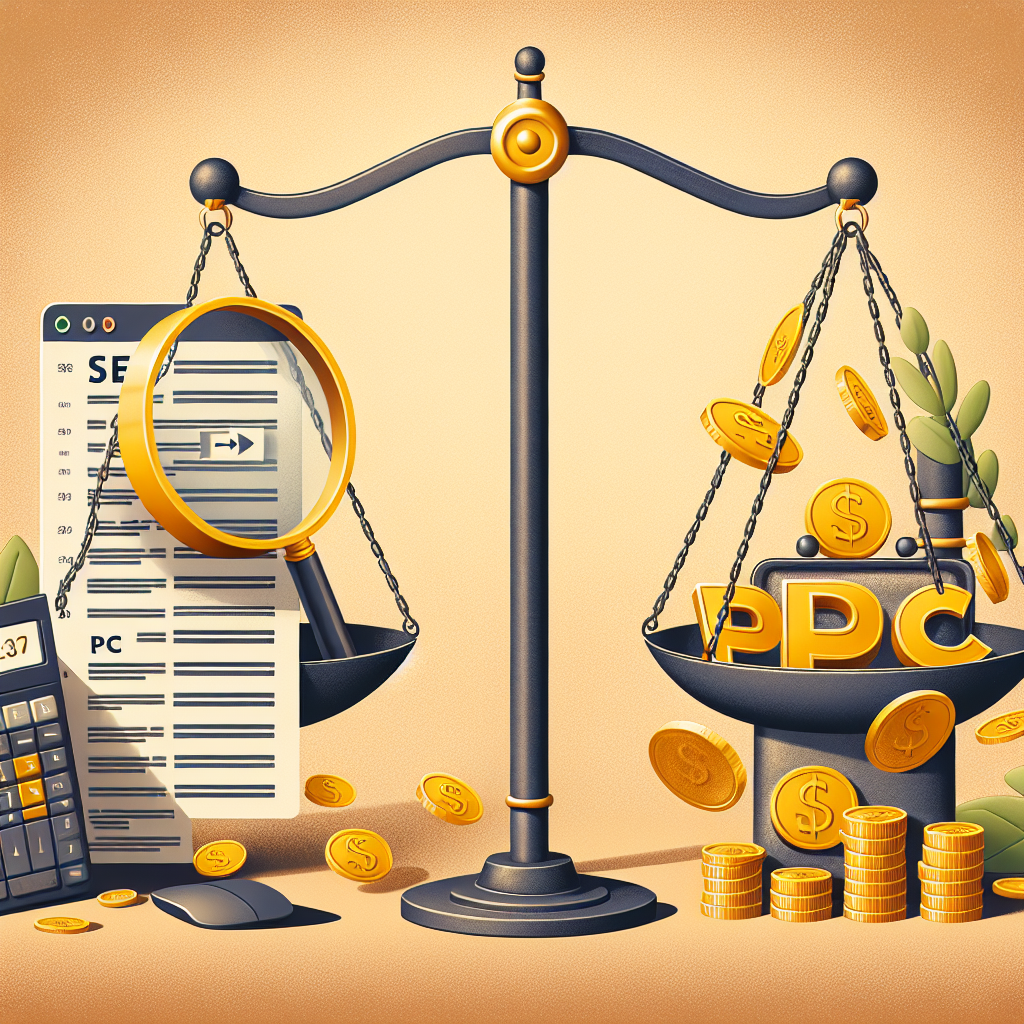In the ever-evolving digital landscape, businesses often grapple with the question of how to effectively drive traffic to their websites. Two of the most popular strategies are Search Engine Optimization (SEO) and Pay-Per-Click (PPC) advertising. Understanding the nuances of these marketing techniques is crucial for making informed decisions about your business’s online presence. This article will explore the differences between SEO and PPC, their benefits, drawbacks, and which strategy may be right for you.
What is SEO?
The Basics of SEO
Search Engine Optimization (SEO) is the art and science of enhancing your website to rank higher in organic search results. This involves optimizing various elements, including keywords, site structure, and content quality. SEO is about building credibility and authority over time, leading to sustainable, long-term traffic without directly paying for clicks.
How Does SEO Work?
Search engines like Google use complex algorithms to determine the relevance and quality of web pages. Factors such as keyword usage, content length, user experience, and backlinks play a significant role in how a site is ranked. The objective of SEO is to create valuable content that answers users’ queries effectively.
The Advantages of SEO
Cost-Effectiveness
While the initial investment in SEO can be high, particularly if you hire experts or agencies, the long-term benefits often outweigh the costs. Once your site begins to rank well, the traffic it brings is essentially free. Unlike PPC, you don’t pay for each visitor.
Credibility and Trust
Consumers are generally more inclined to trust organic search results over paid advertisements. Ranking high on search engines suggests to users that you are an authority in your field, thus boosting your brand’s credibility.
Long-Term Results
Once you establish a solid SEO strategy and start seeing results, your site can enjoy consistent traffic for months or even years. Unlike PPC, where visibility stops immediately after you stop paying, an SEO investment can provide ongoing benefits.
The Disadvantages of SEO
Time-Intensive
SEO is not a quick fix. It often takes time—sometimes months—to see significant results. If you are looking for immediate traffic, SEO may not be the best option for you.
Constantly Changing Algorithms
SEO is a dynamic field. Search engines continually update their algorithms, meaning what works today may not work tomorrow. This demands ongoing adaptation and strategy refinement, which can be a challenge for many businesses.
What is PPC?
The Basics of PPC
Pay-Per-Click (PPC) advertising allows businesses to drive traffic to their websites by paying for ad placements. Advertisers bid on keywords, and when users click on their ads, they pay a predetermined amount. PPC is often associated with search engines like Google, but it can also include social media platforms.
How Does PPC Work?
PPC campaigns operate through a bidding system where advertisers compete for top placement on search engine results pages (SERPs). The cost per click can vary widely based on the competitiveness of the keywords involved. The goal of PPC is to generate immediate traffic and leads.
The Advantages of PPC
Immediate Results
One of the compelling reasons businesses turn to PPC is its ability to deliver immediate traffic. As soon as your ad campaign goes live, you can start receiving clicks and potential customers.
Targeting Capabilities
PPC allows for highly targeted advertising, enabling you to reach specific demographics, interests, and geographical locations. This precision increases the effectiveness of your campaigns.
Measurable and Adjustable
PPC provides robust analytics and reporting tools, allowing you to track your campaigns’ performance in real-time. This data-driven approach enables you to make informed adjustments, optimizing your ROI continually.
The Disadvantages of PPC
Costly Over Time
While PPC can yield quick results, costs can accumulate rapidly, especially for competitive keywords. If not managed effectively, businesses can find themselves spending large amounts with little to show for it.
No Long-Term Benefits
Once you stop funding your PPC campaign, your traffic will disappear. This lack of sustained visibility can make PPC less appealing for businesses looking for long-term growth.
Which Strategy is Right for You?
Assess Your Goals
Determine what you aim to achieve with your online presence. If you need immediate results, PPC might be your best bet. However, if you’re looking for long-term visibility and credibility, investing in SEO may be more appropriate.
Consider Your Budget
Evaluate your marketing budget. SEO typically requires a longer-term investment but can yield sustainable results. Conversely, if you have the funds for ongoing PPC campaigns, this could complement your strategy.
Analyze Competitors
Investigate what your competitors are doing. If they dominate organic search results, focusing on SEO might be necessary to compete. Alternatively, if they have extensive PPC campaigns, consider whether you can outbid them or if SEO could provide a more sustainable advantage.
Experiment with Both
For many businesses, a combination of both strategies may yield the best results. SEO can lay the groundwork for long-term success, while PPC can help you capitalize on immediate opportunities.
Conclusion
Both SEO and PPC offer distinct advantages and disadvantages. By understanding your business’s unique needs, goals, and budget, you can design a marketing strategy that leverages the strengths of each approach. Whether you choose to invest in SEO, PPC, or a blend of both, remember that the ultimate goal is to connect with your audience and drive traffic that converts. As you navigate the digital marketing landscape, continually assess and adapt your strategy to meet the ever-changing demands of your audience and industry.


